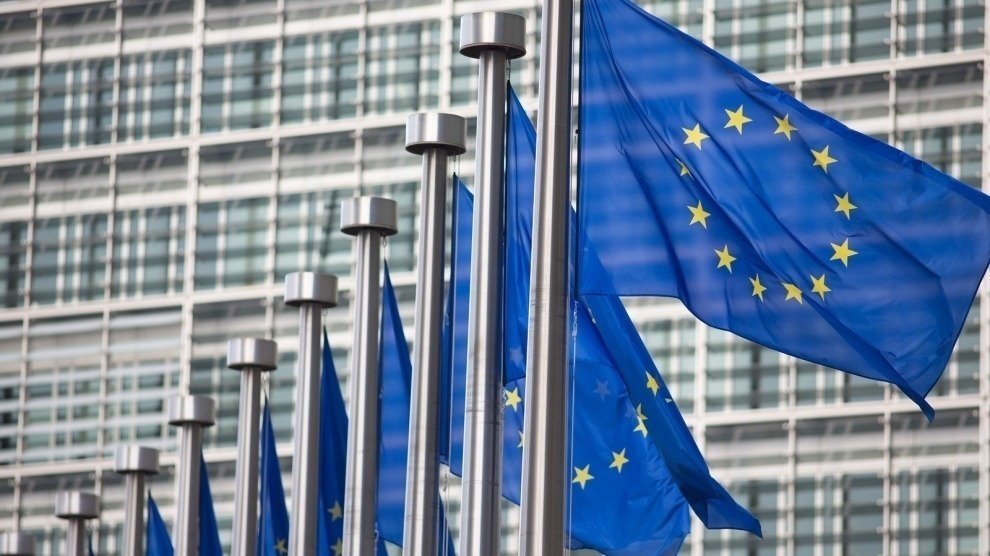Attempts by the European Union to curtail the activities of Big Tech companies like Apple, Google, and Facebook are progressing at a slow pace, with lawmaker infighting potentially weakening and delaying proposals.
The European Commission introduced two pieces of legislation in December 2020, taking aim at Apple and other Big Tech firms operating in the European Union. While the Digital Markets Act and Digital Services Act offered ways to increase competition and reduce the power of the tech giants, progress on bringing the acts into law are being hampered by fighting between politicians.
The disputes over the rule changes could be sufficient enough to delay their implementation by years, reports the Financial Times, potentially until after current EU competition and digital policy head Margrethe Vestager exits her post in three years time.
"It sounded like we had agreed but that is not the case at all," said German MEP Evelyne Gebhardt in a September debate. "We are a long way from having a common position on this."
The main dispute is over determining what companies should be affected by the legislation. While some, including lead European People's Party Group MEP Andreas Schwab, want to focus on the biggest platforms, others want to widen the scope to affect more digital services.
"If the threshold is too low, it would also capture a number of traditional companies," warned Schwab. "But this law is not for the general economy but it is specifically to target digital gatekeepers that are shutting down markets."
Schwab wants to go after firms with market values in excess of 80 billion euro ($92.6 billion), and to take aim at only core digital services of each company. Meanwhile Socialists & Democrats, the second-biggest group in the European parliament, want to cover video streaming services, music streaming, cloud services, and mobile payment platforms, by using a 50 billion euro ($57.9 billion) marker.
"I fear new gatekeepers will rise instantly once you have dealt with Google and the rest," said Dutch MEP Paul Tang. "We need the legislation to be futureproof. We have waited more than 20 years to reform the rules of the internet, and so we will need to make it strong enough for the upcoming 20 years."
Tang added that the legislation should also affect firms that offer multiple services "otherwise Big Tech will know how to bypass the laws with their army of expensive lawyers and this will be a missed opportunity."
There is a hope that there will be a resolution before EU states, the parliament, and the European Commission gather early in 2022, as well as ahead of France's presidential elections in April. France is the holder of the rotating presidency of the EU for 2022.
Europe isn't the only region enduring slow progress on the path to regulate Big Tech companies. In the United States, despite the leaking of internal Facebook documents and increased scrutiny by lawmakers, it is thought that a regulatory battle similar to that against Big Tobacco could take years before law changes make a real difference.
 Malcolm Owen
Malcolm Owen







-m.jpg)






 William Gallagher
William Gallagher
 Andrew Orr
Andrew Orr
 Mike Wuerthele
Mike Wuerthele
 Bon Adamson
Bon Adamson
 Marko Zivkovic
Marko Zivkovic
 Wesley Hilliard
Wesley Hilliard
 Amber Neely
Amber Neely





-m.jpg)



11 Comments
That's because what they are trying to do, much like in the U.S., is target specific firms for no reason OTHER than being quite successful .They are also ignoring the realities of digital platforms, how they work and how they are different from traditional marketplaces and at the same time drawing the wrong conclusions on what differences matter most.
Catch 22 - The requirement to tax the very successful companies but at the same time encourage them to stay local.
Government spending inevitably only goes up due to the people (us) demanding more (we all believe something should be done about …… fill in whatever bugs you).
We will eventually cross the barrier - more being sucked out of the economy than goes in.
The US has traditionally swung between raising domestic taxes and encouraging trade (lowering import duty) to lowering domestic taxes and taxing those pesky importers (or more correctly the consumers of the imports).
Neither solution solves the problem - governments have to spend less overall - but who will vote for that.
Here endeth the lesson
The mindboggling thing is that, while it's almost impossible to introduce a third platform for mobile operating systems on an international scale, you would think that companies like Netflix faces a lot of competition, because a streaming service is pretty personal: you customize it to your own taste and you aren't dependent on your friends, unless you care about watching "trending" shows and movies (which is fine to do, but no one should ever feel pressured to use a specific streaming service).
When people say they are using those "mainstream popular services" (Facebook-owned apps usually), the main argument to continue using the service is that "everyone is using this service – so I can't be the one person switching". But, here's the thing: how far does that chain of dependency reach? From one perspective, I would theorize that as few as 500 people could change the Big Tech landscape by jumping to a new platform, bringing with them 100 million people in a domino effect (it wouldn't happen over night – except in extreme cases, like Telegram getting 70 million new customers over the course of 1 day).
Has anyone thought about this .. how many people it would take to shake it all up? 50? 500? 25 000 .. a million people?
Please fight more so the proposals are eliminated altogether!
"The nine most terrifying words in the English language are: I'm from the Government